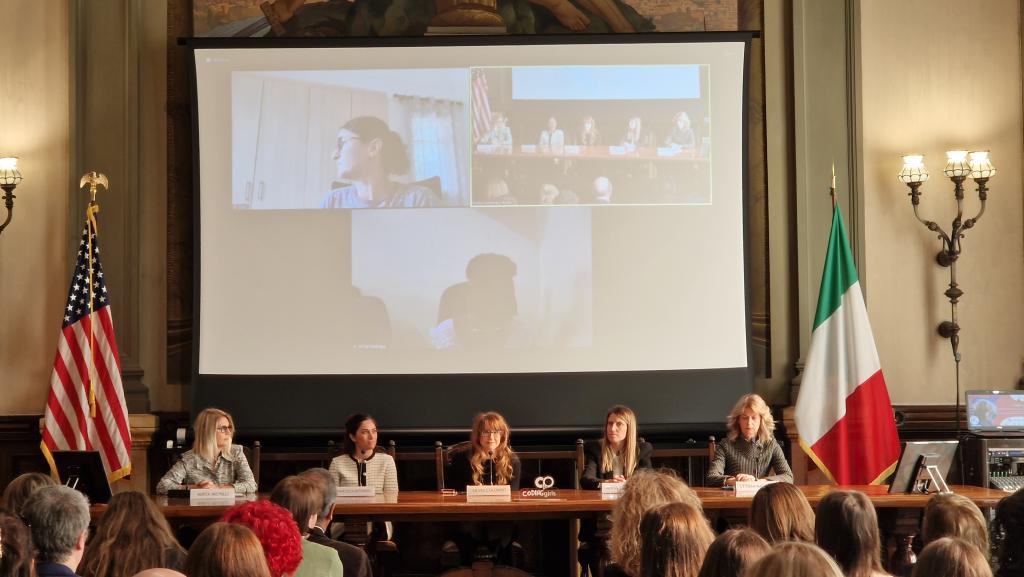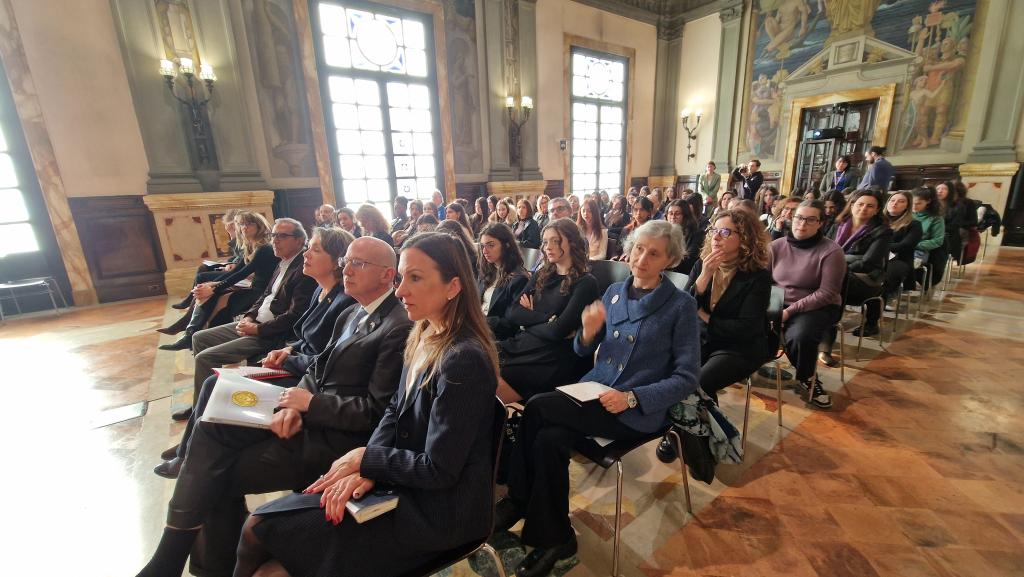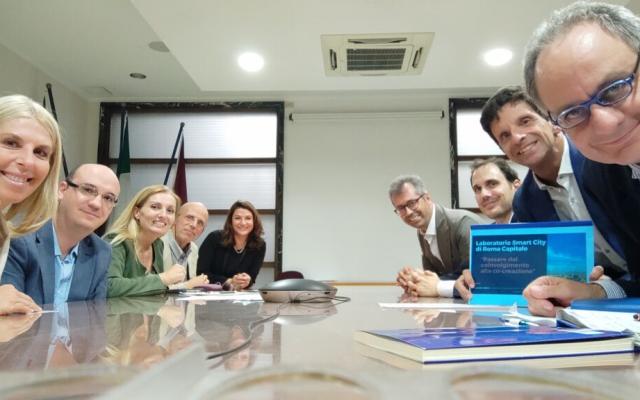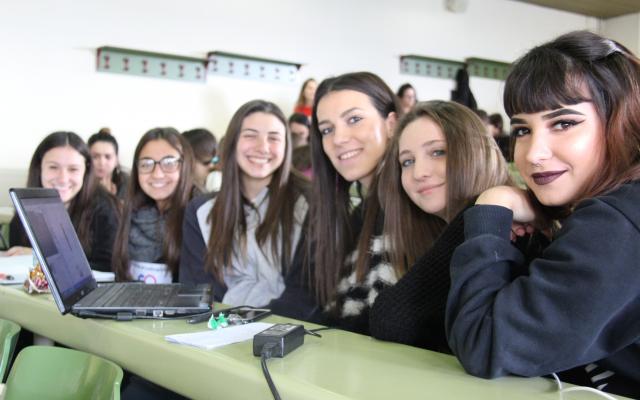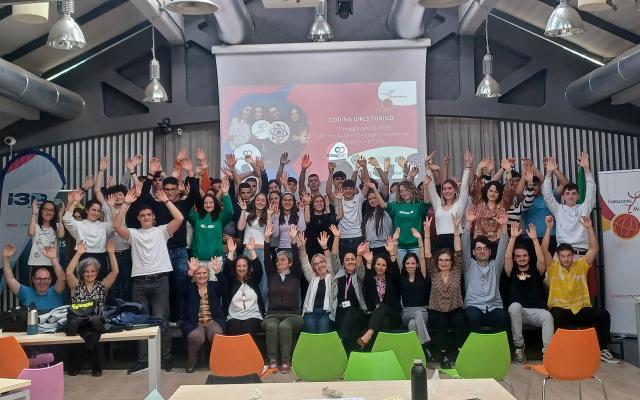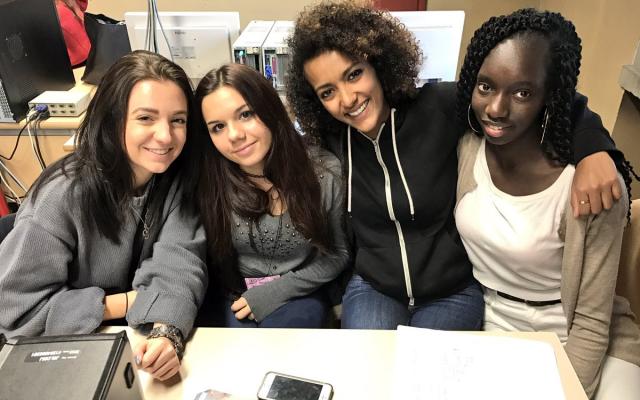Meeting with Ambassador Jack Markell and presentation of the 10th edition
Gender inequality in the working world is still very strong in Italy, too. According to the Global Gender Gap Index of the World Economic Forum, Italy places 79th out of 146 countries. If women participated more in economic and social life, our gross domestic product could grow by as much as 12%. Working on gender stereotypes from the early years of school education remains a must. The Coding Girls programme helps young students to freely orient themselves in their studies and the professions of the future by training them in STEAM subjects. With the milestone of the tenth year, the project has strengthened the educational consortium that supports it and enriched its programme. Yesterday, Jack Markell, United States Ambassador to Italy and the Republic of San Marino, kicked off the tenth edition of he programme, meeting one hundred students from Italian secondary schools and universities, at the United States Embassy in Rome. The young African women protagonists of the Coding Girls in Mozambique programme participated in videoconference.
The alliance, led by the Fondazione Mondo Digitale, involves schools, families, universities, companies, and public and private organizations, with the patronage of the US Diplomatic Mission to Italy and the active collaboration of Microsoft, Fondazione Compagnia di SanPaolo and ING Italia. Moreover, the Vodafone Foundation and Roboteco Italia have also joined the alliance this year. Thanks to this transversal alliance, after involving around 15 thousand female students in more than 30 Italian cities and over 33 universities in the last edition alone, the programme provides young people with the opportunity to meet role models from the academic and corporate worlds, to be inspired by their stories, and to discover new career opportunities and areas. In the new edition, there will be more space for insight into generative artificial intelligence, cybersecurity, financial education and data science, as well as personal development with the Personal Ecosystem Canvas tool, to consciously plan one’s future.
As part of Project Ital.IA Lab, developed with Microsoft to make the potential of generative artificial intelligence available to everyone with a view to inclusion, three training hubs will be opened. Female students will be able to enjoy ad hoc courses to prototype artificial intelligence solutions and compete in hackathons hosted by the University of Cagliari, the University of Molise and, as part of the RomeCup 2024, by the University of Rome Tor Vergata.
In terms of Cybersecurity, training sessions on the main dangers and countermeasures to adopt against cyberattacks will be held at the University of Salerno, at IIS Majorana-Maitani in Orvieto, and at the Liceo Peano in Monterondo, with an analysis of the professional figures linked to online security.
Thanks to the collaboration with the ING Italia Group, fundamental concepts such as the digital transition and financial education will become challenges for prototypes of interactive chatbots and apps, with hackathons held during the Global Money Week (March 18-24) that will take place during RomeCup 2024 (March 20-22, University of Rome Tor Vergata).
The connection with Italian universities is strong. The University of Palermo organises transversal courses and hackathons involving chemistry, physics, engineering, mathematics, and statistics. Furthermore, further insight into data science is planned thanks to the agreement between the Italian Statistical Society and a group of universities: the University of Milan, the University of Caserta, the “Luigi Vanvitelli” University of Campania, and the “Aldo Moro” University of Bari.
Local project declinations in Italy and abroad continue successfully. For 2023-24, thanks to the collaboration with the Fondazione Compagnia di San Paolo, Coding Girls in Turin is once again organised on-site. This is the third edition, which embraces the sustainability approach and involves five lower secondary schools and ten upper secondary schools. Coding Girls in Mozambique, coordinated by CIES and supported by the Italian Agency for Development Cooperation (AICS), involves Italian and African students from ten provinces of Mozambique in basic and advanced level Steam courses, with pilot incubation experiences for the development of micro and small female businesses.
